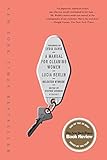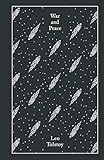Sadly, Denis Johnson is no longer my favorite living author. But he knew death was coming, and left us with his best work since Jesus’ Son—which spent a few decades as my favorite book in my lifetime*. That’s a lot to live up to, and I was a bit disappointed by the first two stories, which were good, but not classic. (Yes, an insane bar.) But “Strangler Bob” turned me around, and “Triumph Over the Grave” was extraordinary. The final lines of “Triumph”… I wrote in my copy, “What a send off. Who could ever top that?”

The closest thing to reading The Largesse of the Sea Maiden for me was listening to Warren Zevon‘s The Wind album, recorded as he was dying of lung cancer. Both extraordinary works, weaving the artists’ final days, and their reflections about them, into timeless art. I will treasure both of them for as long as I’ve got down here, and I have a feeling I’ll be thinking about them as I kiss this place goodbye.
(A functional bonus for travelers: Largesse is slim and light. I spent much of the year chasing the Parkland kids, and packed this wherever I went. I also enjoyed it in small doses of wonder. There are magical moments in here. And about that title: I hated it until I reached the end of the title story. Now I smile every time I think of it.)

Now about that asterisk. Jesus’ Son was my uncontested favorite recent book until 2015, when Farrar, Straus and Giroux published a story collection by the obscure late author Lucia Berlin, A Manual for Cleaning Women. Lucia rocketed from unknown to legendary overlooked genius. I was lucky enough to know her well; we were thrown together by blind luck. Lucia taught me much of what I know about writing, both directly, and by example. I’ve been reading these stories over and over since grad school in the ’90s, but I keep hesitating to read new ones. They’re all that’s left of her, plus my slightly fading memories, and I can’t bear to run out of Lucia to discover.

FSG released another volume this November, Evening in Paradise. I had read about two-thirds of them, gobbled up a few more and made myself stop. They are too priceless to gobble; I want to savor each one. I went to a release event where Ruth Franklin read one of Lucia’s earlier stories, “Point of View.” I must have read it 20 times, but it’s been a while, and I was taken aback by how tight it was. A whole world unfurling each paragraph, fully formed, without a word to spare. I had taken a break from editing my book to run over to the reading—actually brought pages with me to edit—and felt the urge to shred them. I’m not prone to those feelings of unworthiness. I usually only get them after a dose of Nabokov or Tolstoy, or Denis Johnson, wondering how I will ever do that. Of course they are all doing something different that I’m driving at, but still. If someone can be that enthralling, in so few pages… well, that’s something to aspire to. Lucia fits comfortably in that extraordinary cast.

What is it about those Russians, by the way? The 19th-century Russian Empire seems like the last place I should go searching for a kindred spirit, yet I keep finding them there. I finally dove into Anna Karenina in 2016—the first half glacially, over the course of 18 months, then devouring the second 400 pages in three to four weeks. I kept going back to it this year, rereading vivid passages, mostly Levin’s immersions in serf life. Levin tended to annoy me as a character, but his serf-envy was endearing, and his moments among them glorious. (It’s pretty clear Tolstoy envied them as well, and illustrated why.)


I thought about diving into War and Peace next—which I aborted in my 20s, before Anna taught me I just needed to keep a character list to keep them all straight. (My translation of Anna comes with one in the front. I photocopied it to use as a bookmark, and added to it, liberally.) What I really wanted was another dose of Anna Karenina, though, and since my all-time favorite author is Nabokov, I spent early 2018 on his Lectures on Russian Literature. It covers 13 works, yet nearly a third of it is devoted to Anna. My fear was that Nabokov would contradict everything I thought, and I’d be irritated by both of them. Nope. Nabokov has no trouble both choosing it as the masterpiece of Russian literature and pointing out major flaws. Like the first half: way too long and repetitive. Thank you! (Why, Leo? No editor? Didn’t listen to him or her?) And way too much dialectic on both the philosophy and minutia of Russian collective farming. He really lost his focus there.
I find two things refreshing about that, as a reader and a writer: towering achievements can have gaping flaws. Same with humans. Same with everything. It doesn’t denigrate a treasure to acknowledge where it went astray. And it’s comforting to know that even the geniuses I aspire to get some of the big things wrong. Though I haven’t found any glaring flaws in Lucia’s work yet. Maybe I’m still too close.
More from A Year in Reading 2018
Don’t miss: A Year in Reading 2017, 2016, 2015, 2014, 2013, 2012, 2011, 2010, 2009, 2008, 2007, 2006, 2005
The post A Year in Reading: Dave Cullen appeared first on The Millions.
from The Millions https://ift.tt/2UVkHyQ
Comments
Post a Comment